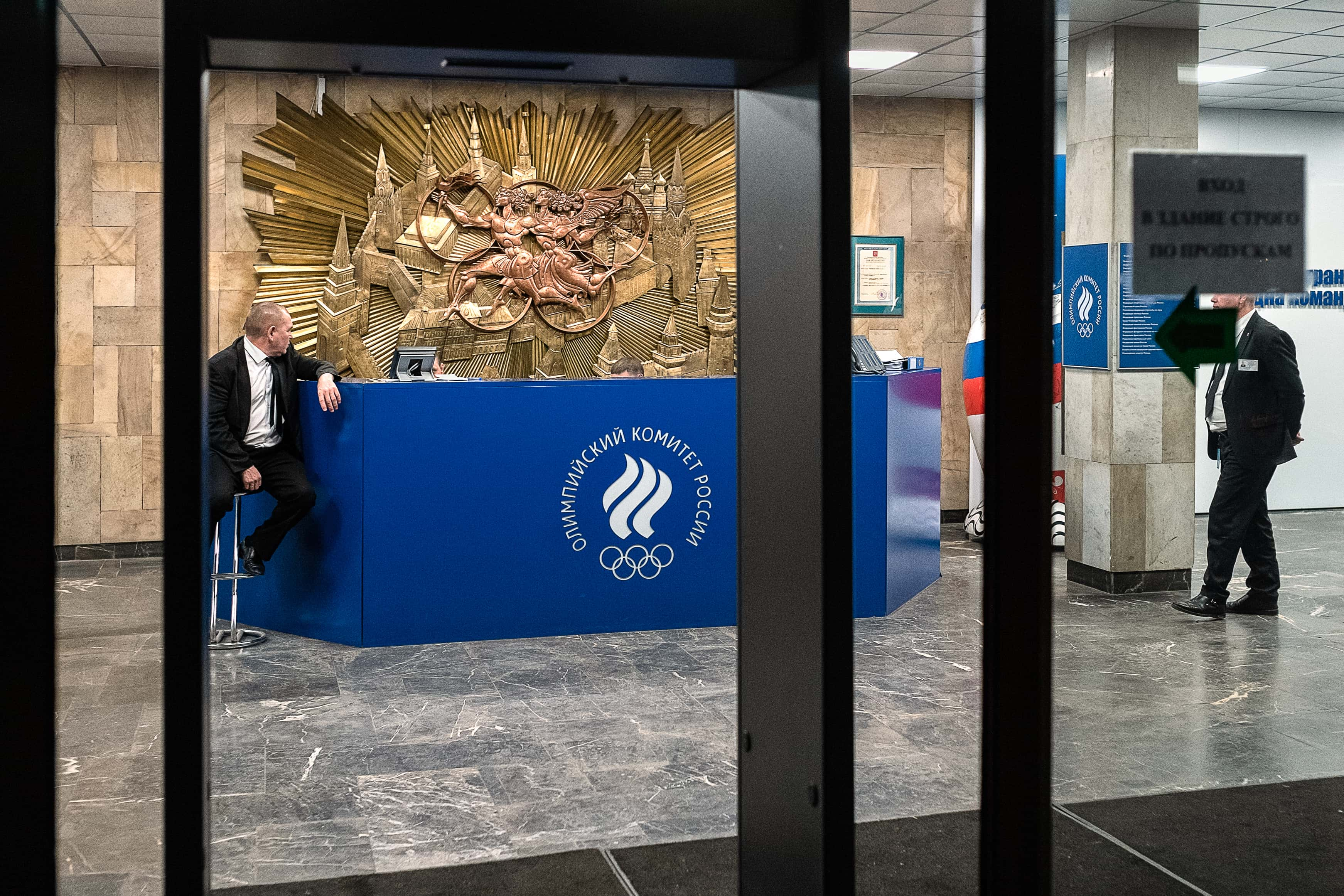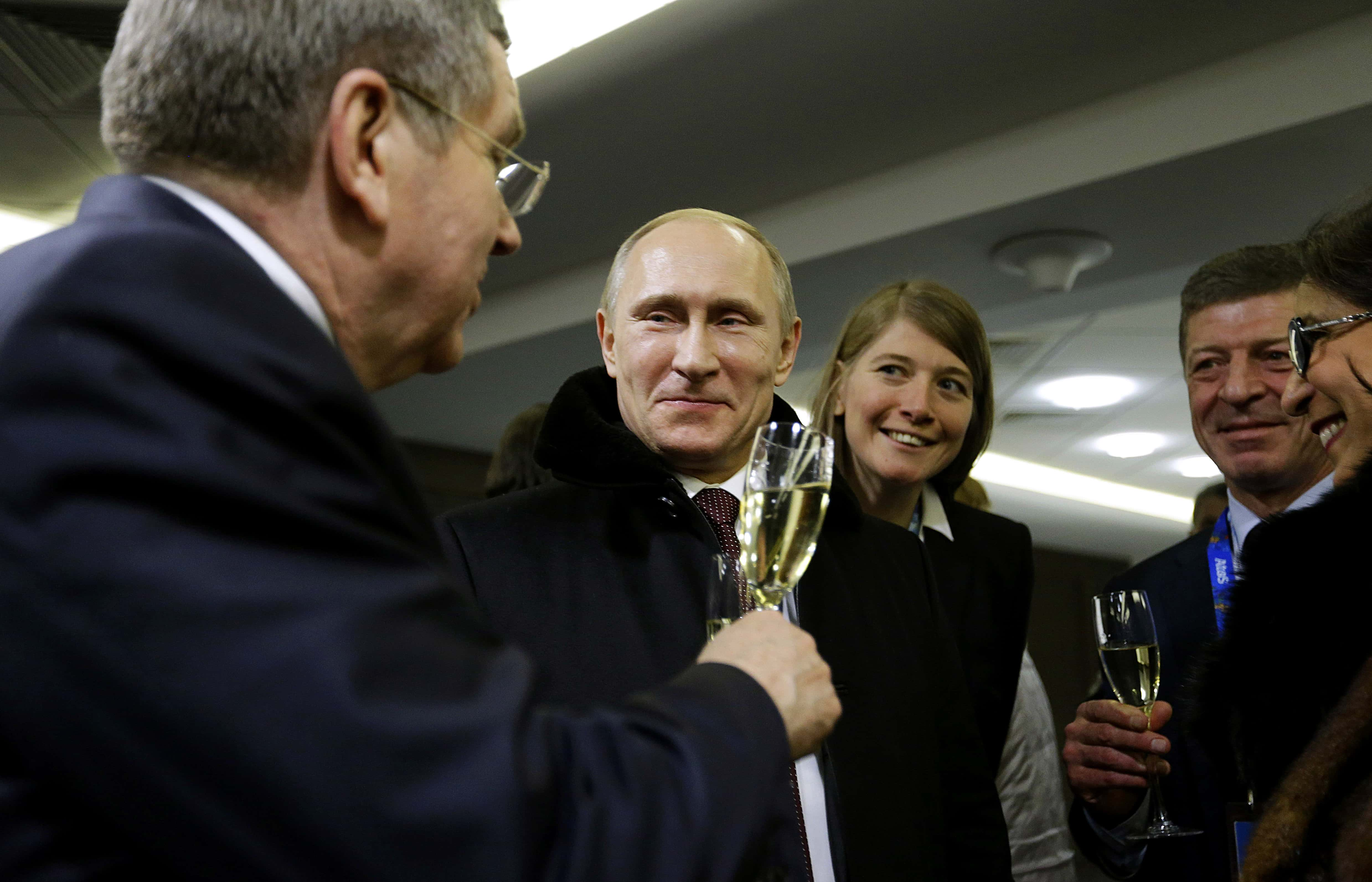Tokyo Olympics: Why is Russia banned from games? Here's what ‘ROC’ means

The Russian Olympic Committee (ROC) announced on June 29 that it will send 335 athletes to the Tokyo Olympics next month. The committee president stressed the fact that the athletes will compete without their national flag and anthem due to existing doping sanctions.
Russian athletes are barred from competing at major international events, including the Olympics, with their flag and national until 2022. As a result, athletes from Russia will compete in Tokyo under the name "ROC", which is an acronym for the Russian Olympic Committee.
"The Russian Olympic Committee has just approved the team for the Tokyo Olympics," president Stanislav Pozdnyakov told reporters. "There are 335 athletes on the list." Volleyball player Maksim Mikhaylov and sabre fencer Sofya Velikaya, who have been picked to be ROC's designated flag bearers, will use the Russian Olympic Committee's flag.
READ MORE
Tokyo Olympics: Full list of sports making their debut or comeback at the games
Tokyo Olympics: Date, schedule and how to watch the summer games this year
What is the ROC?

ROC is an acronym for Russian Olympic Committee or All-Russian united social union 'Olympic Committee of Russia.' It is the National Olympic Committee representing Russia. It was founded in 1911 by representatives of Russian Sports Societies at a meeting in Saint Petersburg, held at the Imperial Russian Society for Saving on the Water.
The International Olympic Committee (IOC) recognized ROC as the legal successor of the Soviet Olympic Committee in September 1992. In November 2017, ROC launched the website Team Russia which was set up to cover news about results of Russian athletes in sports events. Just a month later, the Russian Olympic Committee was suspended by the IOC after it took part in a state-funded doping program. On February 28, 2018, Russian athletes who participated in the 2018 Winter Olympics, were subjected to doping test checks. Despite a couple of failed drug tests, the IOC reinstated the Russian Olympic Committee.
Why was Russia banned for 4 years in 2019?

ROC found itself in hot waters again after Moscow was penalized for providing doctored laboratory data to the global anti-doping authorities which was aimed at hindering their procedure to identify drug cheats. On December 9, 2019, the World Anti-Doping Agency (WADA) banned Russia from all international sport for four years, after the stunt pulled by Russian authorities with the goal of protecting athletes involved in its state-funded scheme at the 2014 Sochi Games.
Russia appealed against the decision in the Court of Arbitration for Sport (CAS). After reviewing its appeal, CAS ruled on December 17, 2020, that the penalty that WADA had placed on Russia had to be reduced. As a result, instead of a blanket ban from sporting events, Russia athletes would be allowed to participate in the Olympics and other international events. However, for the next two years, the Russian team cannot represent their country directly by using its name, flag, or anthem and have to present themselves as "Neutral Athlete" or "Neutral Team". The team could, however, display "Russia" on their uniforms as well as the use of the Russian flag colors within the uniform's design
ROC at Tokyo Olympics
In February 2021, the announcement was made that Russian atlethes would compete in Tokyo under the acronym "ROC." On April 22, 2021, the official replacement for Russia's anthem was approved by the IOC, after it rejected the earlier pick of the Russian folk song "Katyusha." When Russian gold medal winners will stand up on the podium in Tokyo this year and at the 2022 Beijing Games, they will hear music by composer Pyotr Tchaikovsky.










